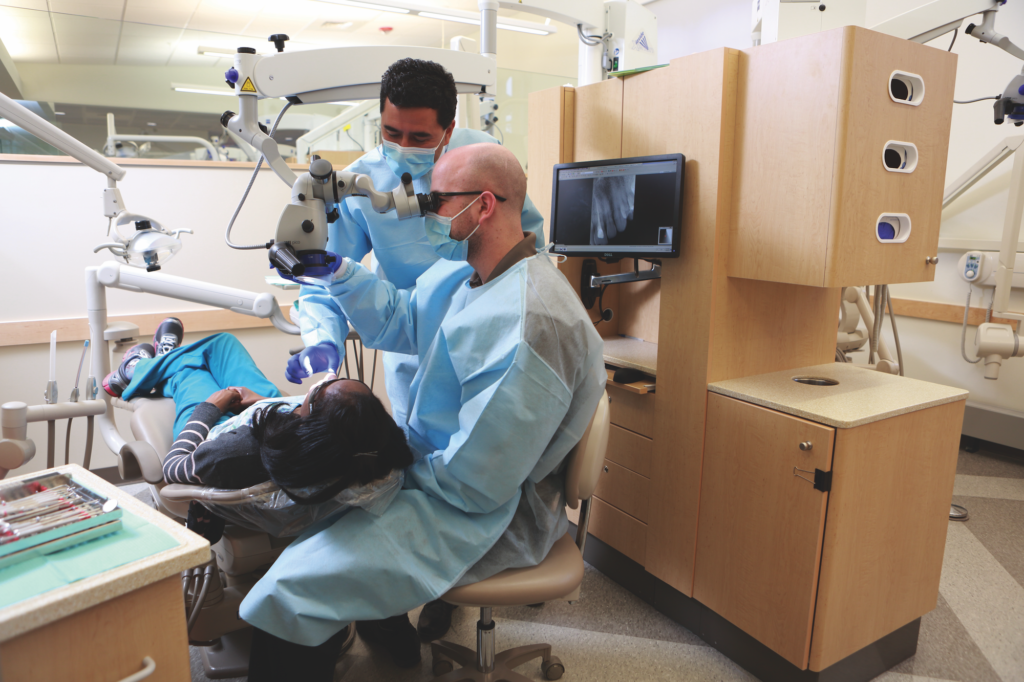
Apical periodontitis, a chronic and hard-to-treat dental infection, affects more than half of the population worldwide and is the leading cause of tooth loss. Root canal is the standard treatment, but existing approaches to treat the infection have many limitations that can cause complications, leading to treatment failure.
Now, researchers at the School of Dental Medicine, Perelman School of Medicine, and School of Engineering and Applied Sciences have identified a promising new therapeutic option that could potentially disrupt current treatments. The team of researchers is part of the Center for Innovation & Precision Dentistry, a joint research center between Penn Dental Medicine and Penn Engineering that leverages engineering and computational approaches to advance oral and craniofacial healthcare innovation.
In a paper published in the Journal of Clinical Investigation, they show that ferumoxytol, an FDA-approved iron oxide nanoparticle formulation, greatly reduces infection in patients diagnosed with apical periodontitis.
“This is the first study showing the clinical efficacy of a nanotherapy in the treatment of a severe chronic biofilm infection,” says Hyun (Michel) Koo of Penn Dental Medicine. “We previously found that ferumoxytol effectively inhibits pathogenic biofilms in the human mouth, so we asked if these same nanoparticles could treat an even more challenging biofilm: those hidden inside the root canal.”
